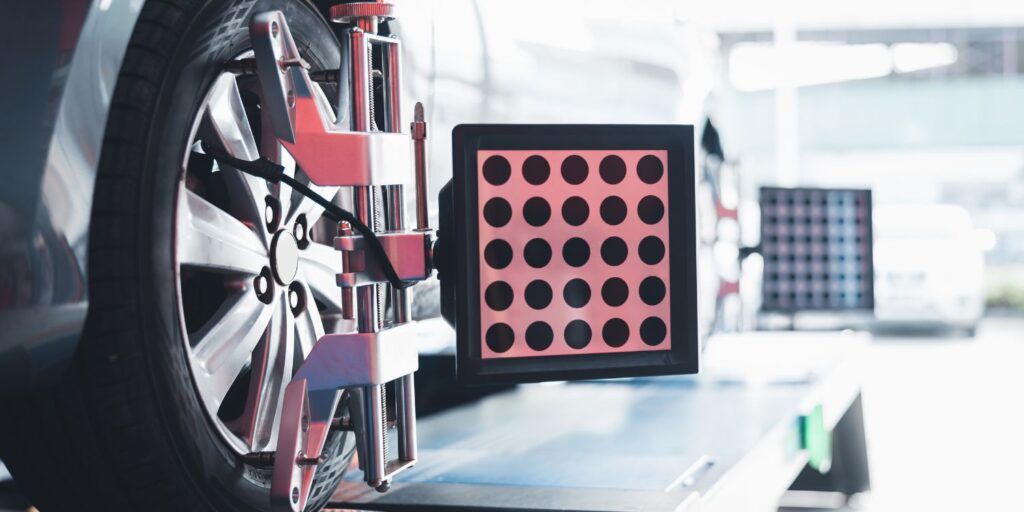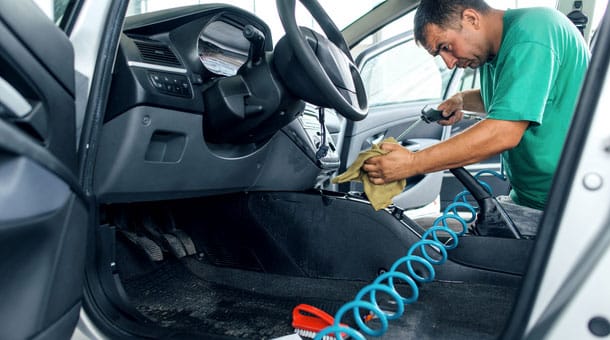Do you want to make your car go faster? In our busy lives, quick cars are a must-have for many people. Some want fast cars for racing. Others just love that feeling of speeding up quickly.
This guide shows you how to get more speed from your ride. We’ll cover things like tuning the engine and upgrading the suspension. Whether for racing or daily driving, a faster car can be lots of fun.
Engine Tuning
Are you keen on driving fast? Want your car to go quicker? There are ways to boost speed. This guide shows how to rev up your ride. From engine tweaks to suspension changes, we’ll cover tricks for zooming ahead.
Whether you like racing or just desire more power, read on for steps to accelerate with ease.
Upgrading Air Intake System
Expanding the airflow into an automobile’s engine increases its velocity potential. Upgrading the intake system amplifies this volume of oxygen ingress, enhancing the combustion efficiency.
Consequently, this mechanical optimization bestows an elevated horsepower rating upon the vehicle.
Installing Performance Exhaust System
Your car’s exhaust system helps remove gases from the engine. A performance exhaust lets gases exit faster. This gives your engine more power. It also makes your car sound louder.
Many people enjoy how their car sounds with a performance exhaust. It adds excitement when driving.
Adding a Turbocharger or Supercharger
For serious performance gains, consider installing a turbocharger or supercharger. These forced induction systems compress air into the engine, allowing it to burn more fuel and produce more power.
However, such upgrades may require modifications to other engine components for optimal performance.
Weight Reduction:
let’s discuss about it :
Removing Unnecessary Accessories
Every extra pound adds to your car’s overall weight, which can negatively impact acceleration and handling.
Remove any unnecessary accessories or items from your car to lighten the load and improve performance.
Using Lightweight Materials
Consider replacing heavy components with lighter alternatives. For example, swapping out steel body panels for carbon fibre ones can significantly reduce weight without sacrificing strength.
Upgrading to Lighter Wheels
Upgrading to lightweight wheels can further reduce unsprung weight, improving suspension responsiveness and overall handling.
Additionally, lighter wheels can reduce rotational inertia, allowing your car to accelerate more quickly.

Transmission Upgrades
let’s explore this :
Installing a Short-Throw Shifter
A short-throw shifter reduces the distance your hand needs to travel when shifting gears, resulting in quicker and more precise gear changes.
This can shave precious milliseconds off your acceleration times, especially in high-performance driving situations.
Upgrading to a Performance Clutch
A performance clutch can handle higher levels of torque and provide better engagement than a stock clutch.
This can improve launch control and overall drivability, particularly in high-performance applications.
Adding a Limited-Slip Differential
A limited-slip differential distributes power more evenly between the wheels, maximizing traction and reducing wheel slip during acceleration.
This can result in faster acceleration times and improved cornering performance.
Tire and Wheel Upgrades
let’s discuss Tire and Wheel Upgrades
Installing Performance Tires
Performance tyres offer superior grip and handling characteristics compared to standard tyres.
Maximizing traction allows your car to put more power down to the ground, resulting in faster acceleration and better overall performance.
Upgrading to Larger Wheels
Larger wheels not only enhance the appearance of your car but also offer performance benefits.
They provide more contact patch areas for the tyres, improving grip and stability during acceleration and cornering.

Adjusting Tire Pressure
Optimizing tyre pressure can have a significant impact on your car’s performance.
Overinflated tyres can reduce traction, while underinflated tyres can increase rolling resistance. Make sure to follow manufacturer recommendations for the best results.
Suspension Modifications
you may have to do modifications to the system, too:
Installing Performance Shocks and Struts
Performance shocks and struts provide improved damping characteristics, reducing body roll and improving stability during aggressive driving maneuvers.
They can also help maintain tyre contact with the road surface for better acceleration and cornering performance.
Upgrading to Stiffer Springs
Stiffer springs can help minimize body movement and weight transfer during acceleration, keeping your car planted and stable. This improves traction and allows for more consistent performance in various driving conditions.
Adding Sway Bars
Sway bars, also known as anti-roll bars, reduce body roll during cornering by distributing weight more evenly across the suspension. This enhances grip and stability, allowing for faster acceleration and more precise handling.
Fuel System Enhancements:
lets explore this :
Upgrading Fuel Injectors
Upgrading to larger fuel injectors can provide more fuel flow to the engine, allowing for increased horsepower and torque. However, it’s essential to ensure proper tuning to avoid running too lean or too rich.
Installing a High-Flow Fuel Pump
A high-flow fuel pump ensures a consistent supply of fuel to the engine, even under high-demand conditions. This prevents fuel starvation and maintains optimal performance throughout the RPM range.
Tuning the Engine for Optimal Fuel Delivery
Fine-tuning your engine’s fuel delivery system can maximize performance without sacrificing reliability.
Whether through aftermarket engine management systems or custom tuning, optimizing fuel delivery can unlock hidden horsepower and torque.
Read more about Estimate How Much It Costs to Fix a Car Dent.
FAQS
Frequently asked questions about how to make your car faster are :
Can I make my car faster without spending a lot of money?
Yes, several budget-friendly upgrades, such as optimizing tyre pressure or installing a cold air intake, can enhance your car’s performance without breaking the bank.
Will making my car faster affect its fuel efficiency?
It depends on the modifications you make. While some upgrades may improve fuel efficiency through better engine efficiency, others, like adding forced induction, may decrease it.
Do I need to tune my engine after making performance upgrades?
Yes, tuning is crucial to ensure your engine operates optimally with the new modifications and to prevent potential damage from running too lean or too rich.
Are there any legal restrictions on making my car faster?
Yes, certain modifications may not be street-legal or may require approval from local authorities. Always research and comply with regulations to avoid legal issues.
Can I make my car faster without voiding the warranty?
It depends on the manufacturer and warranty terms. Some upgrades may void certain aspects of the warranty, so it’s essential to check beforehand and consider aftermarket warranties.
How long does it take to improve car speed significantly?
The time required depends on the complexity of the upgrades and the availability of parts.
Simple modifications like tyre upgrades can be done quickly, while more extensive modifications like engine swaps may take longer.
Are there any risks associated with making my car faster?
Yes, modifying your car for increased speed can lead to reliability issues, decreased fuel efficiency, and even legal complications if not done properly.
It’s crucial to research thoroughly, seek professional advice, and ensure proper installation and tuning.
Can I revert my car back to its original state after making performance upgrades?
In most cases, yes. However, it may require additional time, effort, and expenses to revert your car to its original configuration.
Remember that some modifications, such as engine tuning or body modifications, may leave permanent traces even after removal.
Conclusion
Enhancing your car’s performance is a thrilling journey towards speed and exhilaration.
By following the methods discussed, you can unlock your vehicle’s full potential. Engine tuning, including upgrades to the air intake system and installation of performance exhausts, boosts horsepower and torque significantly.
Weight reduction, through removing unnecessary accessories and using lightweight materials, improves agility and acceleration.
Transmission, tyre, and suspension upgrades, along with fuel system optimizations, contribute to overall performance enhancement.
It’s crucial to approach modifications with care and ensure proper tuning for reliability.
Ultimately, embracing the right upgrades transforms your car into a force to reckon with on the road. So, embark on this journey, unleash your car’s potential, and experience the thrill of speed like never before.




